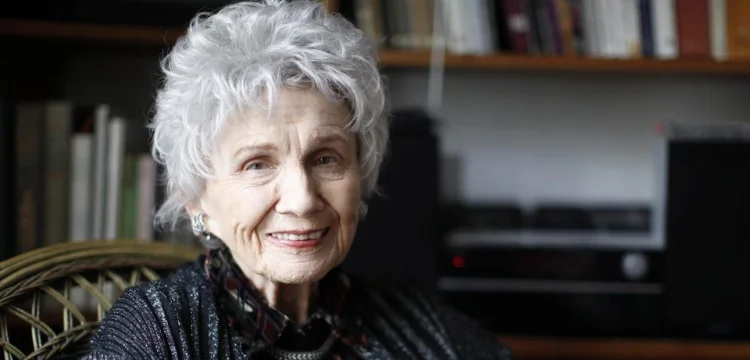Weeks after writer and Nobel laureate Alice Munro died, her daughter, Andrea Robin Skinner, has come out with allegations of sexual assault against her stepfather, Gerald Fremlin.
Skinner shares a harrowing account detailing years of abuse in an essay for Toronto Star on Sunday. Among the many serious accusations, Skinner says her stepfather admitted to the abuse to her mother but Munro continued to stay with him until his death in 2013.
Hailed as one of the best short story writers of all time, Munro died on May 13 at the age of 92. She won the Nobel prize for literature in 2013 and married Fremlin in 1976, after ending almost 20 years of marriage with James Munro in 1972.
The abuse allegedly began in 1976 when she was nine and Fremlin was well in his fifties. In the essay, Skinner reveals that the family was staying in her mother’s home in Clinton, Ontario, when Fremlin sexually assaulted her in her bed while she was asleep.
Also Read: Nadia Jamil Reveals Harassment by Renowned Director
She further maintains that she shared the traumatising experience with her father, James Munro, who refrained from telling Munro.
Skinner divulges the extent of abuse, which spanned years, and allegedly involved Fremlin propositioning and exposing himself to her. She says that her stepfather would also tell her “about the little girls in the neighbourhood he liked”.
According to her, Fremlin ceased the sexual assault once she entered her teenage years. In the aftermath of sustained abuse, Skinner developed bulimia and insomnia.
She states that she first informed her mother about the abuse in 1992. At the time, Skinner was in her 20s. She conveyed the information through a letter, prompted by Munro expressing sympathy for a character in a story who had been sexually abused by her stepfather.
Munro’s reaction
According to Skinner, Munro’s reaction was deeply distressing and that she “reacted exactly as I had feared she would, as if she had learned of an infidelity.” “She said that she had been ‘told too late,’ … she loved him too much, and that our misogynistic culture was to blame if I expected her to deny her own needs, sacrifice for her children and make up for the failings of men,” Skinner writes. “She was adamant that whatever had happened was between me and my stepfather. It had nothing to do with her.”
Diving further into her mother’s disappointing response to Fremlin’s actions, Skinner remarks that she felt “overwhelmed” by how Munro centred herself as the injured party. “She believed my father had made us keep the secret in order to humiliate her. She then told me about other children Fremlin had ‘friendships’ with, emphasising her own sense that she, personally, had been betrayed. Did she realise she was speaking to a victim and that I was her child? If she did, I couldn’t feel it.”
Following Munro’s refusal to acknowledge the harm caused by Fremlin, Skinner chose to distance herself from the couple in 2002. She says the tough decision was prompted partly out of concern for her own children whom she refused to let near Fremlin. However, she was compelled to take action against him when she heard Munro praise him as a husband in an interview.
In 2005, Skinner took Fremlin’s letters to the police. In the letters, Fremlin admitted to the sexual abuse but shifted the blame onto Skinner. The letters further included threats to go public if the situation escalated.
Fremlin pleads guilty
“If the worst comes to worst I intend to go public,” he wrote, according to Skinner. “I will make available for publication a number of photographs, notably some taken at my cabin near Ottawa which are extremely eloquent … one of Andrea in my underwear shorts.”
Skinner disclosed how he described her nine-year-old self as a “homewrecker” and accused her of invading his bedroom “for sexual adventure”. The formal investigation led to an 80-year-old Fremlin being charged with indecent assault against Skinner. Fremlin pleaded guilty but Munro did not part ways with him and was there while he received a two years’ probation.
Munro’s fame as prolific author was one of the reasons why “the silence continued”, Skinner says. “I also wanted this story, my story, to become part of the stories people tell about my mother,” she explains in the essay.
She adds, “I never wanted to see another interview, biography or event that didn’t wrestle with the reality of what had happened to me, and with the fact that my mother, confronted with the truth of what had happened, chose to stay with, and protect, my abuser.”











